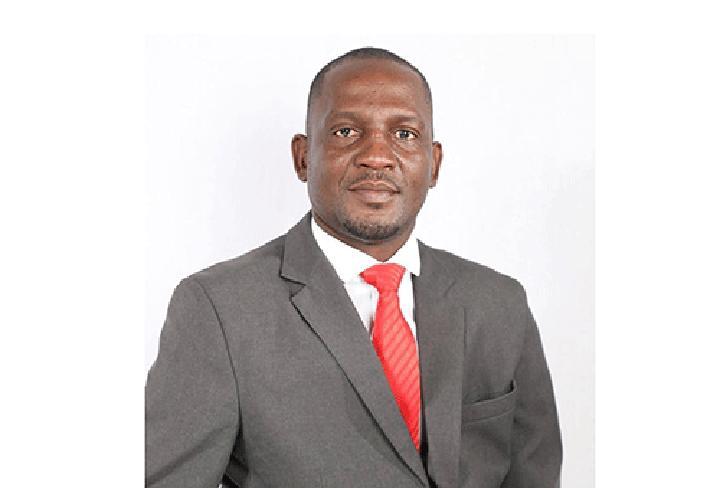Africa-Press – Namibia.
The Ministry of Works and Transport has unveiled an ambitious action plan to accelerate infrastructure development, enhance service delivery and address long-standing logistical and asset management challenges across Namibia.
In an interview with New Era journalist Lahja Nashuuta (LN), Minister of Works and Transport Veikko Nekundi (VN) outlined a roadmap that includes reviving dilapidated infrastructure, implementing a digital asset management system and undertaking comprehensive policy reforms to ensure efficiency, transparency and local economic empowerment.
LN: Minister, the government has entrusted you with managing critical infrastructure and public assets. You have recently completed a comprehensive inventory of government-owned immovable assets. What did you find?
VN: We recently concluded a nationwide inventory of immovable State assets. The register recorded over 8 000 properties, ranging from schools, clinics, hospitals, hostels and government houses to flats, offices and plots. The audit revealed glaring regional disparities, with some regions being significantly under-resourced. This data will now inform equitable, needs-based infrastructure investment across all 14 regions.
Our immediate focus is on rehabilitating key national roads, especially those connecting rural communities to urban centres and economic hubs. Projects are already planned in regions like Zambezi, Kavango West and Kunene, areas that have historically lagged in infrastructure development. We are also formulating a long-term strategy to revitalise rail infrastructure and integrate Namibia’s transport corridors to enhance regional trade competitiveness.
LN: When you assumed office, there was widespread public interest in the revival of Air Namibia. Where does that stand?
VN: Let me be clear: we are not reviving the defunct Air Namibia. However, we are planning to re-establish a new national airline, not for prestige but because a national carrier has immeasurable economic value to our country. This process will be handled prudently and transparently. Contrary to claims that it will cost billions, we are committed to ensuring this effort does not become a financial burden. There is a national committee that has been set up to spearhead the National Airline revival. Every step we take will be communicated to the nation.
LN: The country is grappling with a backlog of maintenance on public infrastructure. What is the government’s plan to address this?
VN: Indeed, the backlog is substantial. Many government buildings, especially schools, clinics and offices, in regions such as Hardap, Omaheke and Zambezi are in a state of disrepair. We have initiated a multi-year refurbishment plan to address this.
We’re also tackling the housing situation for civil servants. Many are living in unfit housing units, while others in high-demand areas face years-long waiting lists. We’ve budgeted for the renovation of nearly 1 000 government housing units over the next three years.
LN: A key aspect of your plan involves digital transformation. Could you elaborate?
VN: One of our top priorities is digitising asset records and service management systems. We are currently piloting an e-asset management platform that enables real-time tracking of asset usage, maintenance requirements and lease statuses. This system is expected to curb corruption, prevent illegal occupancy and support efficient planning and resource allocation.
LN: The Department of Works’ audit for the 2023/24 financial year highlighted that some retired civil servants continue to occupy government houses beyond the one-month grace period. For example, six such cases were reported in the Kunene region. How are you addressing this?
VN: These former civil servants are occupying “pool houses” that have been earmarked for alienation under the Government Housing Policy. We initially offered them the opportunity to purchase the units, but there was no response.
To resolve this, the Cabinet approved a directive (19th/29.10.24/003) allowing biological or legally adopted children and spouses to purchase these houses on behalf of the sitting tenants. We’ve conducted awareness campaigns to inform them, and we are now finalising new offers in accordance with the directive. If there is still no interest, the houses will be offered to other civil servants – and then, if necessary, to the general public.
LN: The same audit revealed that some serving civil servants are receiving housing subsidies while also occupying government-owned houses, effectively double-dipping. How is the ministry addressing this abuse?
VN: The Government Housing Policy explicitly prohibits anyone from benefitting twice. We work closely with respective ministries to verify applicant information before allocations are made. Applicants must also submit payslips to confirm that there are no existing housing subsidies.
Additionally, we conduct annual inspections to verify tenants’ financial status. If someone is found to be double-dipping, eviction proceedings commence immediately. Furthermore, we impose an economic rent of up to N$3 500, which is deducted through the HR departments of the respective ministries.
We recognise that more needs to be done, and we are in the process of revising the Government Housing Policy to close any remaining loopholes.
LN: I understand you declined to approve the appointment of a director within your ministry. Could you explain the reasons behind your decision to withhold approval for this appointment?
VN: Yes. The candidate, who is scheduled to be employed by the Public Service Commission effective Friday, 1 August 2025, is currently serving in the Ministry of Labour and Justice, and will reach the mandatory retirement age of 60 within three months.
On the same note, the appointee placed second in the competitive interview process. Due to the mere fact that she is a female, she was given a free pass without any regard for her age whatsoever. Hence, the minister has expressed concerns that gender considerations may have influenced the selection decision without adequate consideration of the candidate’s impending retirement timeline. As such, I instructed the human resources division and executive director to secure the office designated for the director position and transfer custody of the keys to his office with immediate effect.
LN: Any final thoughts, minister?
VN: Yes. As a government, we have a constitutional and moral obligation to promote local enterprise and inclusive economic growth. Procurement laws already require the prioritisation of Namibian-owned businesses. We must ensure that at least one-third of all subcontractors are locally based and that manufacturers based in Namibia are given preference over imports.
It is unacceptable for basic materials like bricks to be transported across long distances when competent local suppliers exist. This inflates project costs and marginalises local industry.
Going forward, any procurement conditions that exclude Namibian suppliers must be reviewed and amended. If there is any law standing in the way of this objective, my office must be informed within 30 days so that we can initiate the necessary legislative amendments.
We are determined to build a system that is fair, transparent and supportive of our national development goals.
For More News And Analysis About Namibia Follow Africa-Press






